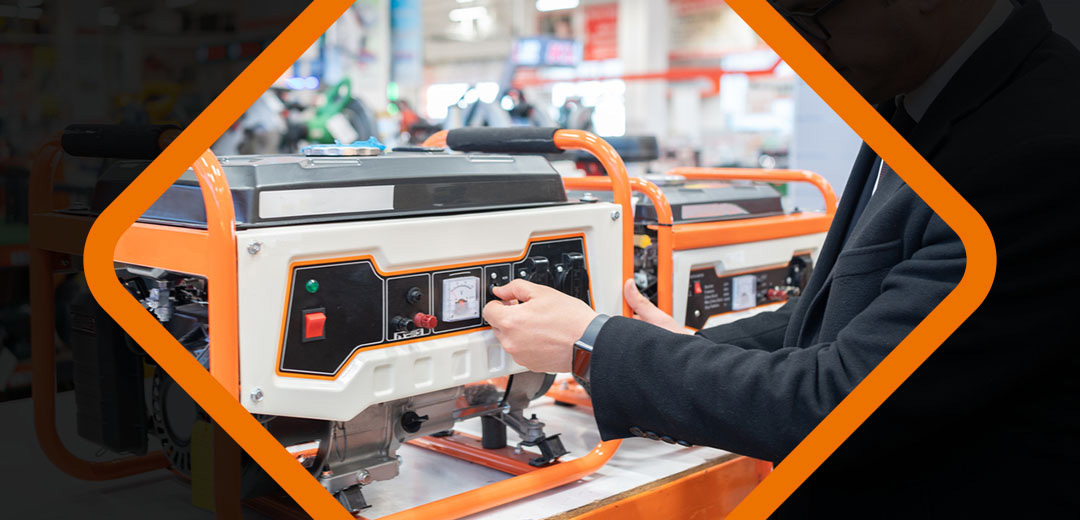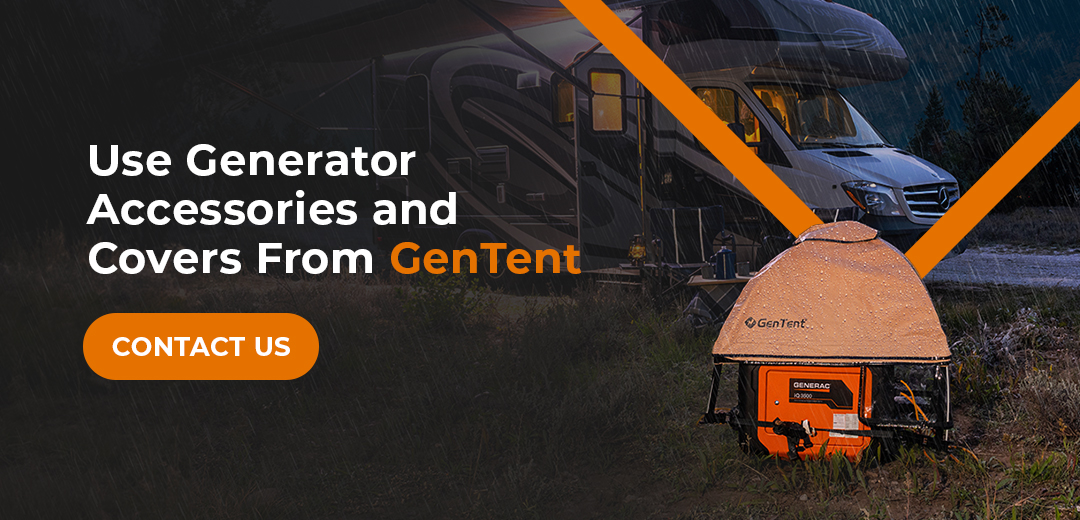Generator Buying Guide
Posted by Casandra M. on May 10th 2023

Generator Buying Guide
Buying a generator can help protect your home or business from power outages. When looking for the right generator, consider how the generator's size and wattage match your power needs.
Why Do You Need a Generator?
A generator is helpful for homeowners and business owners who want to protect their appliances and business operations during inclement weather or storms. Generators are a type of appliance that help supply electricity to a building or for individuals who travel and want portable access to power.
Generators take a form of energy and convert it into electricity, helping to provide power during outages. For areas that often experience bad weather, hazardous storms or fallen power lines, many businesses and homeowners will be prepared with a backup generator to power parts of the building or the entire home. Generators are also helpful for travelers who like to be ready with a charged phone or plug-in campfire stove. You can also use generators to power a recreational vehicle (RV) and appliances near a campsite.
Types of Generators
Depending on your energy needs, you might have to choose between different types of generators. Three main types are portable, inverter and larger or standby generators. By researching these three types, you can be fully informed when investing in a new generator for your home or business.
1. Open Frame Portable Generator
Portable generators were named for their easy portability and quick transportation capabilities. Many manufacturers produce portable generators with wheels so consumers can quickly move them from one place to another. A portable generator might be right for you to access electricity from almost anywhere. Some of the smallest versions are handheld, allowing excellent mobility during camping trips, traveling or festivals.
Portable generators often run on gasoline and are typically the most affordable.
2. Fully Encased Inverter Generator
An inverter generator is small and light, like a portable generator. However, it often weighs less and is easier to transport. Inverters are also quieter than other models due to their conversion of the current to a more regulated and sustained level, their lightweight design and muffled exhaust features. Their quiet design makes them suitable for outdoor activities like camping, festivals, picnics or events.
Inverter generators will differ in type depending on what kind of electricity you need or the amount of power your home or business requires. Consider inverter generators with different portability features and price points. Inverter generators tend to cost more than portable generators, though they will produce less power.
3. Larger Generator
A larger generator acts as a permanent power solution for homes and businesses. They are often larger and more expensive, meaning they cannot be easily transported and are meant for permanent installation and long-term backup power usage.
Larger generators will turn on automatically should your building experience a sudden outage. They are fueled with propane or natural gas and can reduce the safety concerns many who use portable generators may experience. Though larger generators are expensive, the investment is worth it should safety and longevity be your most important priorities.
Learning the difference between a large generator and a standby generator can also be helpful. Larger generators are usually not weather-resistant but are often considered portable, though they rival standby generators in size and production. In comparison, standby generators come equipped with housings.
Generator Size Guide
Generators' power capacity is measured in wattage. Watts measure the amount of electricity produced per hour, meaning the higher the generator wattage, the more appliances you'll be able to power. The amount of wattage a generator contains often determines its size as well.
Generators often use peak or running capacity to measure wattage. Peak wattage creates energy in short bursts to quickly start essential appliances. Running watts work to sustain power for long periods. While portable and inverter generators are smaller than standby generators, sizes vary depending on the generator's specific wattage capacity.
A small, portable generator can power your essential appliances, lights and television. In contrast, a midsized portable generator can power devices and other systems like your sump pump, computer or portable heater. Larger generators, such as portable, stationary and inverter, can power appliances, extra systems and unique features like central air, a water heater, a washer and a dryer. Use a wattage calculator to decide what size generator you need.

What To Look For When Buying a Generator
When buying a generator, consider aspects like personal power requirements, fuel needs or unique accessories when investing in a new product. Here are six areas to consider when buying a new generator.
1. Power Requirements
Consider the power your home or business requires before buying a new generator. What appliances will you be using when powering them with a generator? For example, a portable generator can handle a few small appliances and produces less power. A larger generator can power an entire home when installed professionally.
Evaluate what appliances in your home or business are mandatory. If the power goes out, what can't your facility live without? Review what the generator you have can handle and what appliances you can prioritize. For example, if you operate a restaurant, you may want to prioritize refrigerators and freezers. If you have a generator at home, you might want to prioritize general cooking appliances, washing machines or charging outlets. Some areas may benefit from prioritizing your HVAC or portable heater, as the weather may affect your safety or quality of life.
2. Uses and Needs
Consider your building's unique needs and what you need the generator for. Evaluate the building and decide what model might best fit the situation. For example, you might want a home backup generator in case of a power outage, or perhaps a recreation or commercial generator would better suit your power needs. A camping generator is different from a generator to power an entire home. Consider whether you need a generator you can take while traveling or one that is stationary.
3. Fuel Sources
Generators use three main fuel types — gasoline, propane and natural gas. Portable generators use gasoline, while some larger versions use natural gas. Some generators use all three fuel types or other fuel types like diesel.
Most portable generators use gasoline, which is an easily obtainable resource and often more affordable than other options. Other generators use propane fuel which is more environmentally friendly. Many generators can run with two or more of these fuel types, so do your research before finding a new model. Depending on your expenses, you might consider a generator that only needs gasoline or a model that allows for natural gas or propane if you want to invest a little bit more.
4. Budget Limits
Consider your budget carefully before buying a new generator. Many generators vary in pricing, though inverter models are often more expensive in comparison to other models. Some larger models might be more expensive, while portable generators are more affordable, though you should do your research thoroughly before investing in a new model.
5. Special Features and Accessories
You can add accessories to your generator or find variations with unique features. Consider what is most important to you and your home. Some notable features and accessories include:
- Automatic carbon monoxide shutoff
- A fuel gauge
- A reliable generator cover
- Low-oil shutoff
- Automatic start
6. Safety Concerns
Most generators emit gasses or energy sources that could be harmful if you do not take the proper precautions. Before buying a new generator, ensure the manufacturers have certified the product by the EPA.
At every step, installation experts and manufacturers should work to reduce the chance of carbon monoxide poisoning. Consider other special features like automatic shutoff or wireless alerts to keep you updated at all times.

Use Generator Accessories and Covers From GenTent
GenTent engineers protective covers and accessories for your generators. Buying the right accessories and cover from GenTent can ensure your appliances run well during storms and power outages. Covers ensure generators stay dry during rain and bad weather. NFPA-rated generator tents like GenTent are made from flame retardant materials, protecting you and your investment from high-heat exhaust. Our company aims to maximize the safety of generator usage while eliminating the stress that comes with potential power outages.
With help from our NFPA-rated generator tents and accessories, we know you'll feel safer using your generator as backup power. GenTent products are designed and tested at every step to ensure customer safety. Contact us today to speak to a representative, or call us at 781-334-8368.
